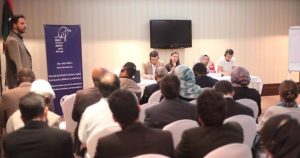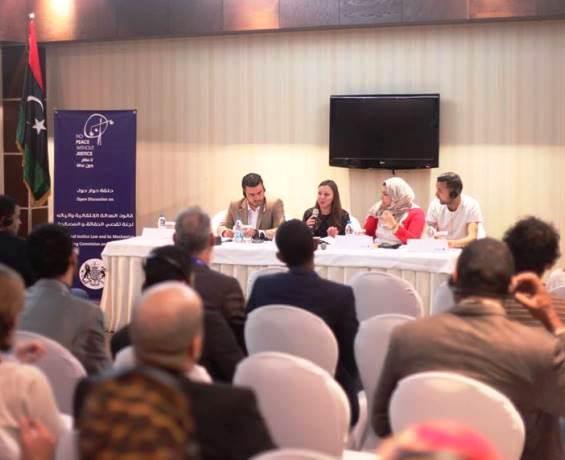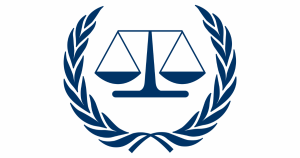On 29 April 2014, No Peace Without Justice (NPWJ) convened a meeting on the Libyan Transitional Justice Law and its mechanisms, within its program on Transitional Justice in Libya. The meeting, held in Tripoli, is the first of a series of meetings that will be organised in the coming months to raise awareness and promote participation and a constructive dialogue between Libyan NGOs and public institutions on the Transitional Justice Law.
More than 60 participants attended the event, including Libyan human rights activists, the Libyan Human Rights Council, representatives from the Tawergha community, a number of women’s organisations, lawyers, the Zawia Bar Association, local and international journalists and researchers, representatives of the international community, including UNSMIL (Rule of Law, Human Rights and Transitional Justice Division), the EU Security and Justice Support Programme and the Centre for Humanitarian Dialogue. The event also saw the participation of representatives of the British and Italian Embassies.

During the meeting, the Civil Network for Transitional Justice (CNTJ), an observatory working group created in January 2014 with the support of NPWJ, provided a presentation of its work since the beginning of the year. Mr Mohamed Gashout and Ms Esra Mhamni, representatives of the CNTJ, introduced the main elements of the TJ law. Additional considerations were added by Mr Hisham Ben Hamed, Libyan Lawyer, member of the CNTJ and expert on Transitional Justice, who listed the responsibilities that the Fact Finding and Reconciliation Commission will be responsible for.
The Commission, envisioned by the TJ law, will work on a number of areas that represent some of the main challenges that Libya is facing today, including collecting information on severe and systematic human rights violations, revising the legislation relating to Transitional Justice, studying the conditions of internally displaced people and developing strategies to provide concrete support to victims of human rights abuses.
During the second session of the meeting, participants engaged in an open and constructive discussion stressing the importance of having more similar events to create awareness on the Transitional Justice law, and promote transparency.
NPWJ in Libya
NPWJ has been working on the Libyan transition since early 2011, in the framework of its project to support Libya’s democratic transition through justice and accountability. As the country embarks on legislative reforms, the Libyan authorities can break with the legacy of impunity and abuses that typified Gaddafi’s rule with a new respect for the rule of law and a commitment to restoring justice and dignity to victims. Doing so requires not only the investigation and prosecution of the crimes and violence perpetrated during the revolution, but also efforts to confront a history of oppression and human rights abuses that dates back decades under the rule of the former regime.
For further information on the activities of NPWJ in Libya please contact Giulia Cappellazzi, at gcappellazzi@npwj.org or +218911476934.




